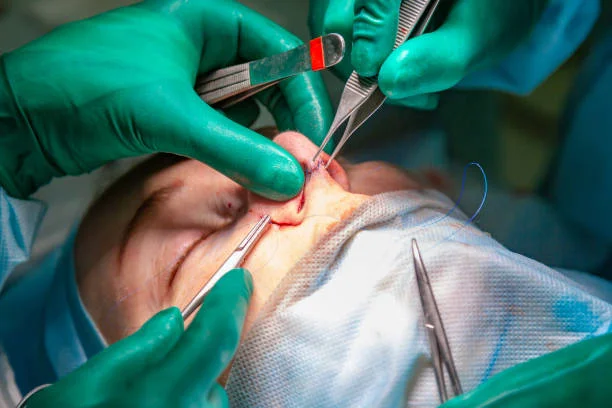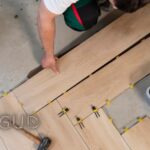In the world of cosmetic surgery, few destinations attract as much attention as Turkey, and for good reason. Rhinoplasty, often referred to as nose surgery or a “nose job,” has become the most common cosmetic procedure in the country, drawing tens of thousands of international patients each year. From affordability to innovation, Turkey has positioned itself as a leader in both surgical excellence and medical tourism.
Clinics across Istanbul and other major cities are at the heart of this trend, with specialists known for handling diverse nasal anatomies from around the world. Among them, Aslı Tarcan Clinic in Istanbul stands out as a leading choice for patients seeking ethnic rhinoplasty. With deep expertise in tailoring procedures to different facial structures, the clinic has earned a reputation for results that are natural, balanced, and culturally respectful.
The Numbers Behind Turkey’s Rhinoplasty Success
According to global data, rhinoplasty consistently ranks among the top five cosmetic surgeries worldwide. But in Turkey, it takes the top spot:
- 2024: 60,982 rhinoplasties performed, about 10.7% of all surgical aesthetics in the country.
- 2023: Over 83,000 nose surgeries, marking a peak year.
- Globally: more than 1 million rhinoplasties in 2023, with Turkey contributing a significant share.
- Over 100,000 international patients travel to Turkey annually for nose surgery.
This high demand reflects not only affordability but also trust in Turkish surgeons and the country’s well-developed healthcare infrastructure.
Why Patients Choose Turkey for Nose Surgery
Turkey didn’t become the global hub overnight. Several key factors explain its rise:
1. Affordability
One of the main reasons Turkey has become a global hub for rhinoplasty is affordability. On average, nose surgery in Turkey costs between $2,000 and $5,000, making it far more accessible compared to many Western countries.
For context, the average price of rhinoplasty in the United States is around $7,500, while in the UK costs often exceed $5,000. Even with recent inflation, Turkey remains 50–70% more affordable, offering patients significant savings without compromising on quality.
What makes Turkey especially appealing is the value-packed nature of the treatment. Many clinics provide comprehensive packages that include not only the surgery itself, but also 5-star accommodations, VIP airport transfers, and post-operative care. This all-inclusive approach makes the process smoother for international patients, combining high-quality medical care with comfort and convenience.
2. Skilled Surgeons with High Volumes
Turkish surgeons perform an exceptionally high number of rhinoplasty cases each year, which allows them to refine their techniques and build expertise at a rapid pace. This volume of practice means that many specialists reach a level of mastery much earlier than their counterparts in lower-demand markets.
Adding to this advantage is Turkey’s unique geographic position at the crossroads of Europe, Asia, and the Middle East. Surgeons in Istanbul and other major cities regularly work with patients from a wide range of ethnic backgrounds, each with distinct nasal anatomies and cultural preferences.
3. Advanced Techniques and Innovation
One of the key reasons Turkey has earned a reputation as a leader in nose surgery is its early adoption of advanced surgical techniques. Piezoelectric (ultrasonic) rhinoplasty, introduced in Turkey nearly a decade ago, has transformed the patient experience by significantly reducing bruising and swelling, which in turn speeds up recovery times. This method allows for more precise reshaping of nasal structures while minimizing trauma to surrounding tissues.
In addition, many clinics now use 3D imaging and AI simulations during the planning stages. These tools give patients the opportunity to preview potential outcomes before surgery, helping align expectations and ensuring that both patient and surgeon share the same vision.
Across the country, surgeons place strong emphasis on techniques that deliver natural, subtle results while preserving full nasal function. This combination of artistry, technology, and medical precision is a major factor behind Turkey’s global recognition in rhinoplasty.
4. Strong Medical Infrastructure
Since the early 2000s, Turkey has made significant investments in its healthcare system with the goal of becoming a global leader in medical tourism. These efforts have paid off, transforming the country into one of the most trusted destinations for patients seeking cosmetic procedures, including rhinoplasty.
By 2025, Turkey is home to more than 40 internationally accredited hospitals, with the majority located in Istanbul. These facilities operate under strict global standards, ensuring that patients not only receive advanced surgical care but also benefit from high levels of safety, comfort, and overall medical quality.
5. Medical Tourism Appeal
One of Turkey’s unique advantages is its ability to combine world-class medical care with unforgettable cultural experiences. Many international patients plan their rhinoplasty around visits to iconic landmarks such as Hagia Sophia, the Bosphorus, and Cappadocia, turning their journey into both a medical and cultural experience.
Comprehensive packages make this process seamless. In addition to the surgery itself, patients often receive luxury accommodations, private transfers, and structured aftercare, ensuring comfort and peace of mind throughout their stay. This blend of healthcare and hospitality has made Turkey especially appealing for those who value both results and experience.
Considerations and Risks
While Turkey offers many advantages, patients should approach surgery with careful planning:
- Risks if clinics are not vetted: infections, scarring, or unsatisfactory results.
- Language barriers: can lead to misunderstandings if translation isn’t provided.
- Remote follow-up: once patients return home, aftercare may be limited.
How to minimize risks:
- Choose accredited facilities.
- Verify surgeon credentials and training.
- Ask about aftercare protocols.
Recovery in Turkey
Recovery follows the same general timeline worldwide, though Turkish clinics often provide structured care with nearby hotels and follow-ups:
- First week: swelling and bruising peak; most patients rest locally.
- 10–14 days: visible bruising fades, patients may return to work.
- 6–12 months: final definition and results become visible.
All-inclusive packages often extend patient stays for 1–2 weeks, ensuring early recovery is supervised by the surgical team.
Final Thoughts
Turkey’s rise as the global hub for nose surgery is the result of affordable pricing, surgical expertise, modern techniques, and strong infrastructure. More than just numbers, it reflects a cultural shift in how people view cosmetic surgery, as an accessible, confidence-building option rather than a luxury.
For international patients, especially those seeking ethnic rhinoplasty, Aslı Tarcan Clinic in Istanbul exemplifies the best of what Turkey has to offer: a blend of precision, cultural sensitivity, and patient-centered care that delivers natural, lasting results.







